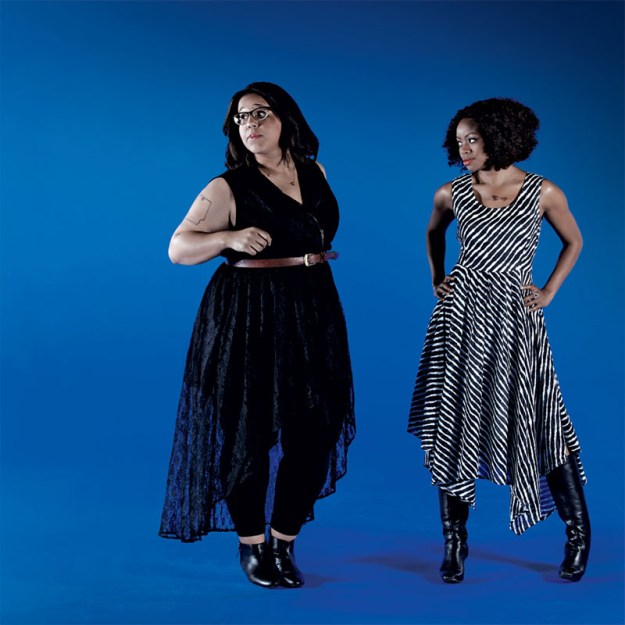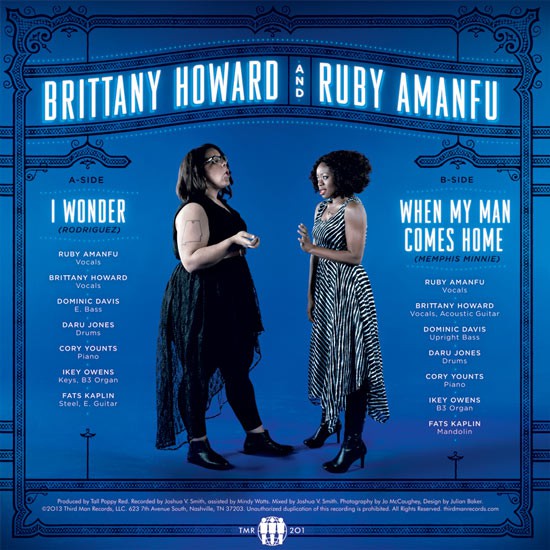Jack White would probably get pissed if I called his record shop in Nashville a hipster haven. He would also hate it, as Bourdain does, when people call him a hipster idol. Alas, that is what they are, and that is what Third Man Records is. This is by no means an insult. I would actually go so far as to say that it is probably a compliment. White earned his reputation by making and producing his own music and loads of others’ music as well. Full disclosure: I love his music, and I am a relatively big fan. I have seen him play live three times. So I really liked Third Man. OK, now that that’s out of the way. Let’s begin.
Third Man in Nashville is an extension of White’s mindset. The warehouse-with-a-storefront is a literal embodiment of his entire persona. The storefront is so well designed you could almost mistake it for a restored saloon. The ceilings are decorated with embossed tiles reminiscent of the Art Deco movement of the early ’20s; the walls are painted with the label’s signature yellow and black.
In the backroom there is a sound booth with two turntables, so you can listen to the records before you purchase them. Even the refurbished LP recorder and photo booth add to the mystique of the dream that White is trying to fulfill.
What makes the shop in Nashville so unique is actually the Blue Room. You may have heard of it: the room where artists can record live straight to acetate. When I went, these were the records I was specifically looking for. They are a two-sided 7-inch vinyl in blue packaging (of course).
I purchased the Brittany Howard (lead of Alabama Shakes) and Ruby Amanfu (member of White’s all-female band, The Peacocks) collaboration. They sing “I Wonder” by Rodriguez and “When My Man Comes Home” originally recorded by Memphis Minnie. If you are familiar with Alabama Shakes’ music (I mean, if you’re not, I pity you), this LP evokes a lot of their classic Southern-rock sound. Through the layers of acoustic guitar, you can hear the falsetto of an organlike keyboard in the background, while Howard’s and Amanfu’s voices intertwine.


I can and will link you to the digital versions of these songs, but honestly it just doesn’t do them justice. Like many “old people” (and some young), I believe that music really does sound better on vinyl (luckily this was recorded on vinyl, then made digitally). So does this engineer, who has more credibility than I do.
Artists new and old have recorded in the Blue Room while passing through the music city. Beck, Wanda Jackson, and Tom Jones are some of the more popular names, but there have also been unexpected artists, like Insane Clown Posse, John C. Reilly, and Stephen Colbert, who recorded a single with the Black Belles. These are the cleaner productions. Third Man also records live shows straight to eight-track, including the roars of the crowd and the musical flaws of stage performance. One of my favorites, Joyce Manor, performed on the Blue Room stage in August 2016 to record a 7-inch. Other artists, like Ashley Monroe, Jack Johnson, and the Kills have recorded full 12-inch albums.
Third Man does what many hipster establishments do. It draws on nostalgia to create an experience that most of its fans never experienced in the first place. It also strives to produce quality. Argue all you want: There is a certain level of integrity in the “hipster movement.” The fact that Jack White was able to open a record-press plant in Detroit in 2017 shows how much influence hipsters have on the market.
Both White and Ben Blackwell, who is in charge of Third Man’s vinyl production, thought the whole business would be a wash. But after seeing that people were really interested, they began pressing albums for artists not associated with Third Man. In an interview with the Detroit Free Press, Blackwell said, “Plants can’t keep up with the demand from customers. We saw that as a problem and decided to not just be using up capacity when we were pressing for our label … but to make capacity available for other folks, for small independent labels or bedroom artists.”
So next time you purchase a vinyl album, remember to thank a hipster or send fan mail to Jack White, because without him and Third Man Records, we’d still be listening to low-quality MP3s of today’s Top 40 hits.